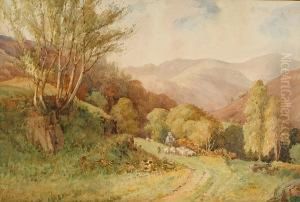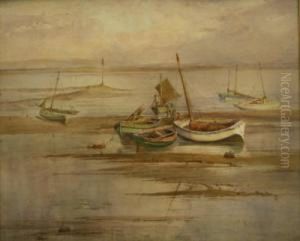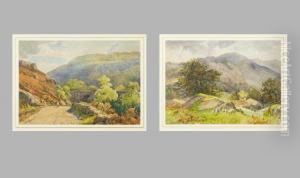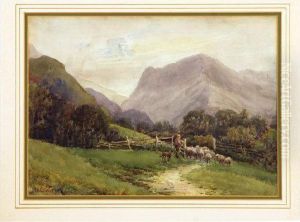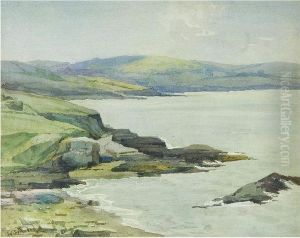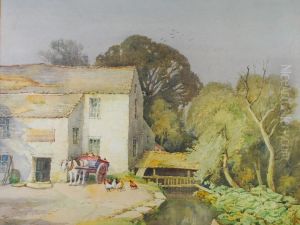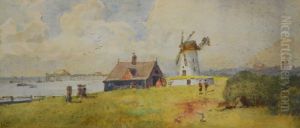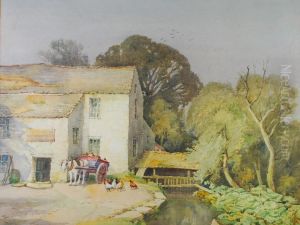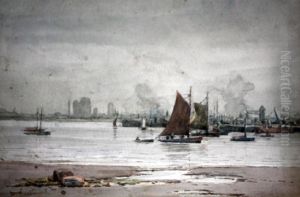Walter Eastwood Paintings
Walter Eastwood was a British artist, born in 1870 in Nottingham, England, and passed away in 1953. He was renowned for his exquisite watercolour paintings that primarily captured the English countryside, its gardens, and pastoral scenes. His work is characterized by a delicate handling of light and an intricate attention to detail, which together imbue his landscapes with a serene, almost idyllic quality.
Eastwood’s artistic journey began at the Nottingham School of Art, where he honed his skills and developed a profound appreciation for the natural beauty of the English landscape. Despite the prominence of industrialization during his lifetime, Eastwood’s work remained firmly rooted in the depiction of rural and untouched scenes, often evoking a sense of nostalgia and tranquility.
Throughout his career, Walter Eastwood participated in numerous exhibitions, both locally and nationally, though he shied away from the limelight, preferring the solitude of his studio and the countryside that inspired him. His works were well received, and he gained a modest but dedicated following during his lifetime. Today, Eastwood's paintings can be found in private collections and occasionally appear in auctions, where they are sought after by collectors who appreciate his fine detail and mastery of watercolour.
Despite his contributions to British art, Walter Eastwood has not been widely celebrated in the canon of art history, and as such, detailed records of his life and work are somewhat scarce. However, his surviving works continue to be appreciated for their beauty and craftsmanship, serving as a testament to his skills and his passion for the natural world. Walter Eastwood remains an example of an artist who devoted his life to capturing the essence of his environment, creating a body of work that continues to enchant and inspire.
